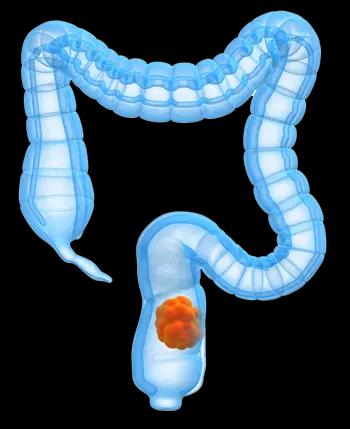Colorectal or rectal cancer is a type of cancer that originates in the large intestine (colon) or the rectum. It claims thousands of lives each year. However, the good news is that we can significantly reduce the risk of this disease through proactive measures. This guide will explore the varied approaches to colorectal cancer prevention, drawing insights from the latest research and expert recommendations.
Understanding the risks
Colorectal cancer is the third leading cause of cancer-related deaths in the United States, underscoring the importance of understanding the risk factors. Age, family history, personal medical history, inherited genetic predispositions, and lifestyle choices all play a crucial role in determining one’s susceptibility to this disease.
Age and family history
As we grow older, the risk of colorectal cancer increases, with the majority of cases diagnosed after the age of 50. Additionally, individuals with a close family member who has been diagnosed with colorectal cancer are at a heightened risk, with their chances of developing the disease doubling compared to the general population.
Personal medical history
A personal history of certain conditions, such as previous colorectal cancer, high-risk adenomas (precancerous polyps), ovarian cancer, or inflammatory bowel diseases like ulcerative colitis or Crohn’s disease, can significantly increase the risk of developing colorectal cancer.
Inherited genetic mutations
Certain inherited genetic mutations, such as those linked to familial adenomatous polyposis (FAP) or hereditary non-polyposis colon cancer (HNPCC, also known as Lynch Syndrome), can predispose individuals to a higher risk of colorectal cancer.
Lifestyle factors
Lifestyle choices, including excessive alcohol consumption, cigarette smoking, and obesity, have been associated with an increased risk of colorectal cancer. On the other hand, regular physical activity and a healthy diet rich in fruits, vegetables, and whole grains may help lower the risk.
Prevention
Knowing the risk factors is the first step, but the real power lies in implementing effective preventive strategies. From screening and polyp removal to embracing a healthier lifestyle, there are numerous ways to safeguard against colorectal cancer.
Regular screening
Regular colorectal cancer screening is one of the most powerful tools in the prevention arsenal. Screening tests, such as colonoscopies, can help detect precancerous polyps or early-stage cancer, allowing for timely intervention and potentially preventing the disease from developing or progressing.
Polyp removal
The removal of large (1 centimetre or larger) or high-risk colorectal polyps during screening procedures can significantly reduce the risk of these growths developing into cancer over time. However, it’s important to note that removing smaller polyps may not necessarily lower the risk of colorectal cancer.
Aspirin and anti-inflammatory drugs
Mounting evidence suggests that taking aspirin regularly for at least two years can lower the risk of colorectal cancer and associated mortality. Similarly, certain nonsteroidal anti-inflammatory drugs (NSAIDs), such as celecoxib, have been shown to reduce the risk of colorectal adenomas (benign tumours) recurring after removal.
Hormone replacement therapy
For postmenopausal women, combination hormone replacement therapy (HRT) that includes both estrogen and progestin has been associated with a decreased risk of invasive colorectal cancer. However, it’s crucial to weigh the potential benefits against the increased risks of conditions like breast cancer, heart disease, and blood clots.
Lifestyle changes
Adopting a healthier lifestyle can play a significant role in colorectal cancer prevention. Regular physical activity, maintaining a healthy weight, limiting alcohol consumption, and quitting smoking are all important steps that can help reduce the risk of this disease.
Dietary changes
While the relationship between diet and colorectal cancer risk is complex, some studies suggest that a diet low in processed and red meats, and high in fibre, fruits, and vegetables, may help lower the risk. However, more research is needed to establish definitive dietary guidelines for colorectal cancer prevention.
Emerging preventive approaches
As our understanding of colorectal cancer continues to evolve, researchers are exploring innovative ways to help reduce the risk.
Non-steroidal Anti-inflammatory Drugs (NSAIDs)
While the evidence on the preventive benefits of NSAIDs other than aspirin is not conclusive, some studies have shown that drugs like sulindac and celecoxib may help reduce the number and size of polyps in individuals with familial adenomatous polyposis (FAP). Further research is needed to determine the long-term impact on colorectal cancer risk.
Calcium and vitamin D
The role of calcium and vitamin D in colorectal cancer prevention remains a topic of ongoing investigation. Some studies have suggested a potential link between higher calcium intake and a reduced risk of colorectal cancer, but the findings are not yet definitive.
Dietary supplements
The potential impact of dietary supplements, such as folic acid and magnesium, on colorectal cancer risk is also being explored. While some studies have hinted at a possible protective effect, more robust research is needed to draw firm conclusions.
Personalised prevention strategies
As our understanding of colorectal cancer risk factors and prevention strategies continues to evolve, the importance of personalised approaches becomes increasingly clear.
Genetic counselling and testing
Individuals with a strong family history of colorectal cancer or known genetic predispositions may benefit from genetic counselling and testing. This can help identify specific genetic mutations and guide the development of tailored prevention and screening strategies.
Shared decision-making
Effective colorectal cancer prevention often involves a joint effort between patients and healthcare providers. By engaging in shared decision-making, individuals can work with their healthcare team to develop a personalised prevention plan that takes into account their unique risk factors, preferences, and overall health status.
Embracing a proactive mindset
Ultimately, the key to effective colorectal cancer prevention lies in adopting a proactive mindset. By understanding the risk factors, embracing preventive strategies, and staying informed about the latest advancements, individuals can take charge of their health and reduce their chances of developing this devastating disease.
Conclusion
Colorectal cancer prevention combines regular screening, lifestyle modifications, and emerging preventive strategies. We can work towards a future where colorectal cancer is a rare and manageable threat. Remember, prevention is the most powerful weapon in the fight against this disease, and by taking proactive steps, we can all contribute to a healthier, cancer-free world.
Sources
- Colorectal Cancer Prevention – How to Prevent Colorectal Cancer – American Cancer Society
- Colorectal Cancer Prevention – NCI
Medical Disclaimer
NowPatient has taken all reasonable steps to ensure that all material is factually accurate, complete, and current. However, the knowledge and experience of a qualified healthcare professional should always be sought after instead of using the information on this page. Before taking any drug, you should always speak to your doctor or another qualified healthcare provider.
The information provided here about medications is subject to change and is not meant to include all uses, precautions, warnings, directions, drug interactions, allergic reactions, or negative effects. The absence of warnings or other information for a particular medication does not imply that the medication or medication combination is appropriate for all patients or for all possible purposes.









